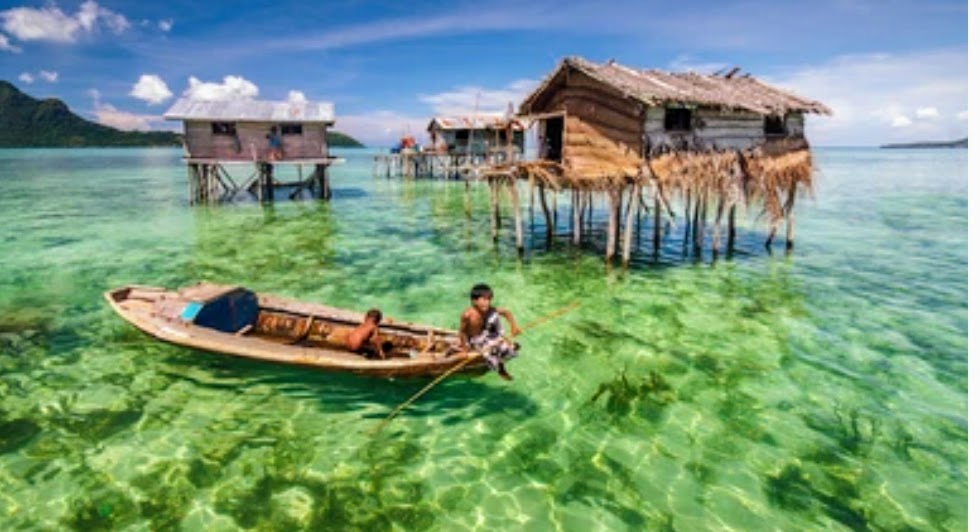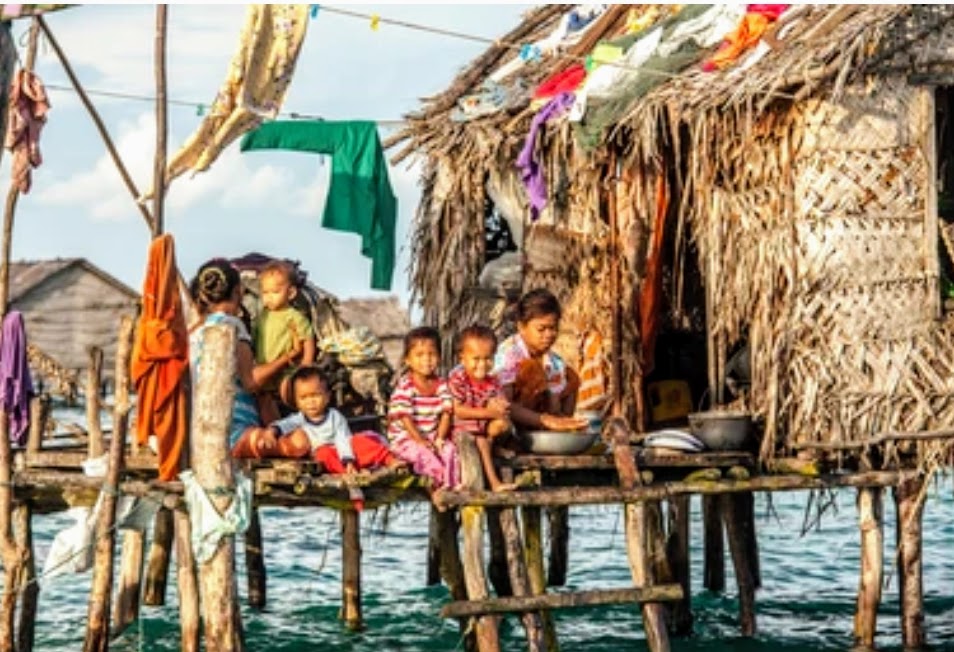The community in Sabah’s Semporna remains unrecognised and unprotected, and deprived of education and healthcare.
(This article by.Rebecca Chong appeared in the Scoop, published here with permission.)
SEMPORNA – The Bajau Laut (commonly known as Pela’uh), often referred to as the “true masters of the sea”, have navigated the waters between Sabah, Indonesia and the Philippines long before Malaysia was established in 1963.
For decades, this community led a nomadic lifestyle, moving from one place to another on their boats.

While many recognize them as sea gypsies or seafarers living on boats, reports suggest that only about 100 to 200 Bajau Laut houseboats now roam the seas of Sabah.
Most Bajau Laut have abandoned their nomadic lives, opting instead to build and settle in wooden huts on islands off Semporna. These homes, however, are deemed “illegal structures” by the government.
Several factors could be driving this transformation, including the ageing of their boathouses and the inability to afford replacements, the depletion of marine resources they rely on for survival, and exposure to the modern lifestyles of locals on the Semporna mainland and islands, leading to the realisation of a potentially better way of living.

Some Bajau Laut have moved to Sabah’s mainland, but their presence is often regarded as illegal, leading to their classification as illegal immigrants.
Assimilation was inevitable for the Bajau Laut community, yet the transition has been fraught with challenges.
As stateless individuals, they remain unrecognised and unprotected by any government, depriving them of access to education and healthcare. Illiteracy is widespread, and many cannot tell the time, rendering them unaware of their human rights and vulnerable to exploitation.
Those who have settled on land are often perceived as a social problem within the local community due to their unfamiliarity with laws and limited understanding of socially acceptable behaviours.
Some resort to begging on the streets, while others sniff glue, unaware of the wrongness of their actions.
Mohd Rahmat Mosa, a local activist and educator at a school for stateless children in Semporna, explains that the Bajau Laut may sniff glue for leisure, not realising it is illegal.
“It is not exactly to keep them from feeling hungry, but when they sniff glue, they forget to eat (thus saving money). It is entertainment to them,” he said.
Rahmat noted the common misconception that the Bajau Laut are dangerous and aggressive, whereas many scholars and academicians describe them as a people who prefer to avoid conflict.
“They have their own life at sea, but circumstances have forced them to survive on land. They live on land as they have at sea. They were barefoot at sea; they went barefoot on land. They are very timid. You ask them to move, and they move. What they need is education. They need to be taught what is right and what is wrong,” he added.
The Home Ministry recently revealed that approximately 21,800 stateless Bajau Laut individuals reside in Sabah.
In early June this year, the media reported that Sabah authorities had evicted and demolished hundreds of stilt huts erected within the boundaries of the Tun Sakaran Marine Park for security reasons.
This action drew international attention, with many critics adopting a humanitarian perspective, criticising the government for its perceived lack of empathy and effort in assisting the marginalised community.
As Malaysians, should we prioritise protecting ourselves from them, or should we shield them against injustice? Is this community to blame for our social ills, or are they merely victims of circumstance? – scoop.com



